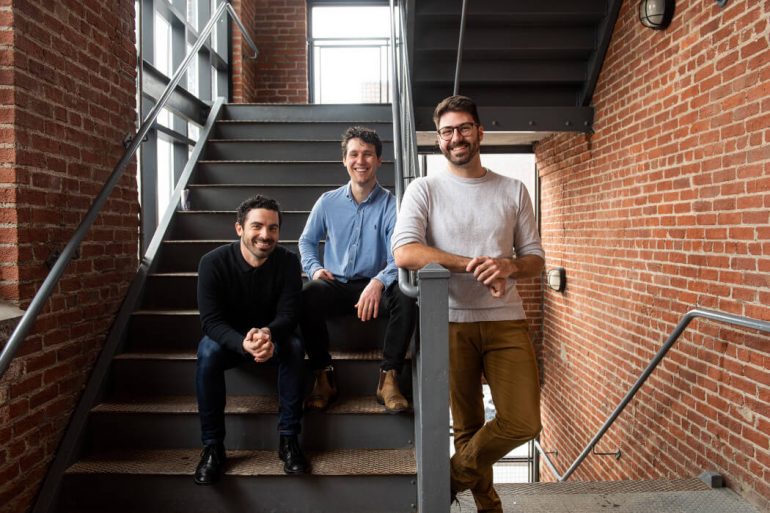Montréal-based healthtech startup Clinia has closed $5 million CAD to expand the reach of its artificial intelligence-powered search tools for the health space across North America.
In an interview with BetaKit, Clinia co-founder and CEO Simon Bédard said that patients need help to access the right health resources. According to Bédard, general search engines like Google provide a glut of search results muddled with marketing, which can make it difficult for users with specific health issues to determine “what’s good and not good” for their individual situations.
Rather than compete directly against other digital health companies, Clinia sells its search infrastructure to them.
“As Google is our first point of entry for information in general, we believe there should be a first point of entry for health searches in general,” said Bédard. “And that’s what Clinia’s working on.”
Clinia offers search infrastructure specifically designed for healthcare, which it sells to businesses operating in the health space. Bédard described the startup’s offering as “search-as-a-service.”
The startup’s seed round was led by AQC Capital, with participation from Anges Québec, Groupe Benoit, Kastello, and Formentera Capital. The $5 million consists of $4.3 million in equity financing and $700,000 in grant funding from NRC IRAP. To date, Clinia has raised a total of about $5 million in equity and $3 million in grants.
Clinia has built its search infrastructure from the ground up, focusing from the search stage to the resulting action a user may take, which in many cases is booking. Clinia’s tools allow users to search for health information and services both within Clinia’s clients’ ecosystems and outside of them, enabling its customers to keep their users within their own “walled gardens.”
“If you offer at least a simple search within your app, then at least you start knowing what [your customers] do, what they’re searching for,” said Bédard. “You may not have the content to start with, but then in real time, we’re able to say, well, we need to find this information, we need to find new sources, and then you get into this virtuous circle of offering a very concrete ecosystem.”
RELATED: AQC Capital secures $64 million for second tech startup fund
Clinia first launched in 2016 as business-to-consumer (B2C) play with the goal of becoming an “Expedia of healthcare for Canada,” launching a website named GoWell that remains accessible but is no longer maintained by the company. Clinia grew GoWell to about 250,000 unique monthly users before abandoning the project.
“A couple of years down the line, we realized that we couldn’t really solve the real navigation issue of patients finding the right resource at the right time,” said Bédard.
Sensing an opportunity in the business-to-business (B2B) space, Clinia pivoted. Today, rather than compete directly against other digital health companies, Clinia sells its search infrastructure to them.
“We leverage our search infrastructure as an API to allow health organizations, generally speaking, to use our tech and integrate this functionality within their own ecosystem,” said Bédard. “We now help organizations really build their own ‘Google of healthcare’ within the workflows that they want.”
RELATED: Doctor-backed KixCare secures $2 million to make pediatric care more accessible
Rather than compete against other digital health companies, Clinia is looking to serve them. In Canada, Clinia has amassed a list of clients that includes fellow Montréal-based healthtech company Dialogue, Telus Health, and New York’s Teladoc.
While there are other companies trying to solve for how to help patients access the right health resources, Bédard claims most take a B2C approach.
“I’m not aware of an organization that approaches the market the same way we do,” said Bédard. “Obviously many organizations have an intent to facilitate access and be like that digital front door and gateway to healthcare. We think we can power many of those [companies], whether it’s Dialogue, Telus, Medimap—thousands of those using our search—and still own the patient that they’ve nurtured over time.”
To date, Clinia has operated as a product-led startup. Now, the company is looking to build out its go-to-market team.
RELATED: Medimap raises $3.5 million to bring walk-in clinic wait time tech to more medical practices
Clinia focuses on two main verticals: digital health companies and insurers or payers. As the sales cycle in insurance is particularly long, the startup’s main focus right now is on the digital health space, which offers a faster path towards scaling.
Last year, Clinia facilitated over 1 million unique searches across Canada. Now, the company is looking to take its health search infrastructure to the United States (US). Bédard said Clinia is already in “advanced discussions” with some of its existing clients with US operations to serve them outside of Canada.
Over the next year, Clinia plans to double the size of its 25-person team, with a particular focus on adding more employees in product, engineering, and data roles.
Feature image courtesy Clinia.


